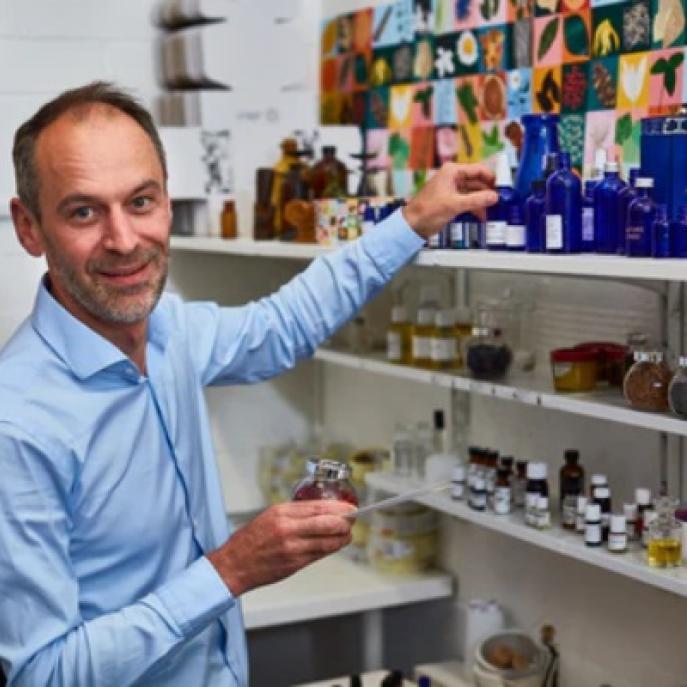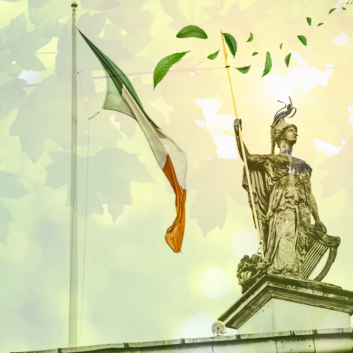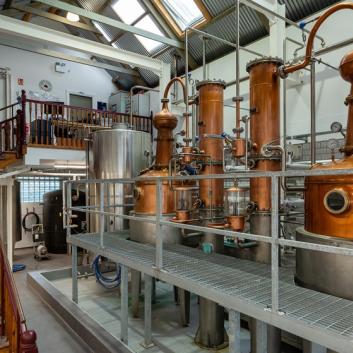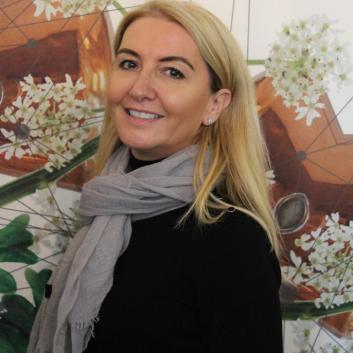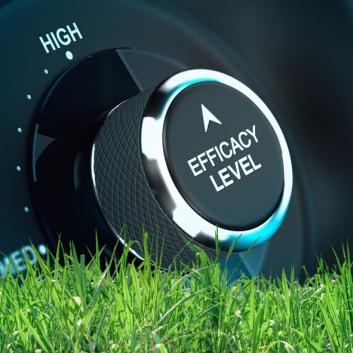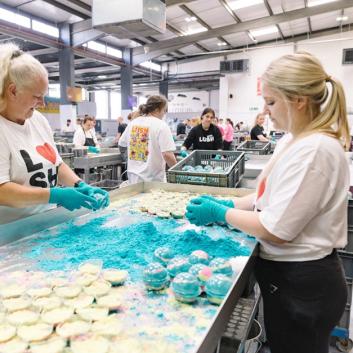Creating scents with a difference
Driving positive change can happen in every industry, and no drop is too small when it comes to sustainability.
When Benoit Nicole started his business, The Nature of Things, he was looking for key elements such as creating a line of essential oils that embody top-quality ingredients and care for the natural environment and local communities.
Building on over 20 years of experience in the perfume industry allowed him to learn from the best, know the pitfalls, and polish his senses to identify high-end raw materials and products.
Originally from the west of France, he spent decades in New York working for leading brands in the field, gathering insights on how essential oils are made, distributed or marketed for various user needs from the food industry to vitamin supplements and perfumes.

“The best ‘noses’ in the business taught me how to smell, how oils can live together and how they can make you feel, while scientists and aromatherapists taught me the positive effects the oils can have on your health and well-being.”
He also witnessed how different strategies were built to ensure that brands were not only ahead of change but also driving change.
“In the mid-80s, sustainability was an emerging word that was not really considered in most business plans,” says Benoit.
He was inspired by other industry business leaders, like Aveeda, one of the pioneers in using organic materials.
“They pushed for organic certification before people even talked about sustainability and invested in suppliers to produce sustainably.”
He recalls that Aveeda`s founder once said, "The more we grow, the more impact we will have on the world, so it is my responsibility to ensure that we do this in a way that has a positive impact.”
After falling in love with an Irish girl and moving to Ireland in 2019, he decided it was time to put all his passion and learnings into creating his own line of essential oils that reflect his values and offer customers an extraordinary experience.
Right from the start, he understood sustainability is far too complex to be handled rigidly when it comes to managing suppliers.
“My approach is to have the best in class in my supply chain and work with distillers who care for the environment and the local community besides delivering quality materials.”
However, given that he sources ingredients from all corners of the world, such as Atlas Cedar from Morocco, Eucalyptus from Spain, Ylang Ylang from Madagascar, and Lavender from France, it is clear that a one-size-fits-all mindset won`t work.
Wherever applicable, he looks for organic and Fair Trade certificates. Still, suppliers need not be certified if their circumstances don`t allow them to.
"My extensive experience helps me decide which distillers are genuinely producing sustainable products.Visiting the sites and having conversations with owners and managers provides an opportunity to learn their true nature of business and their unique way of managing land, processes, and people.”

Instead of forcing certifications, Benoit takes the time to truly engage with suppliers, whether in person or remotely, and dig deep enough to get an overall picture of their business using different sources of information.
"For instance, if they don`t have Fair Trade, how can they offer similar assurances, like fair wages? How do they manage people who work in the fields?
All these aspects help me understand the complex system they have in place for farming the whole year round.”
He adds that these suppliers typically run smaller operations, so no big corporate policies would apply, making adapting other evaluations more sense.
Benoit explains that in these cases, looking at the environmental impact in terms of energy, water, farming practices, alternatives for pesticides like organic fertiliser, or basic solutions like plants that repel bugs can be more meaningful than being certified.
Besides managing the supply chain, he also pays attention to running a conscious company, using paper or glass packaging or higher-quality plastic that can be better recycled while minimising its impact through logistics and other operational areas.
“Although about 90 per cent of our sales are to retail, we receive enquiries from our customers asking for more information on our ingredients and sourcing regarding sustainability, which clearly shows an interest in these areas. They even send back bottles to be reused.”
He adds that The Nature of Things is a small company, so they aim to focus on the most relevant areas to minimise their environmental impact.
“I like to think that we are successful and will be successful in the future because we are going for top quality and sustainability."
To him, sustainability also means profitability, so they can be fair with suppliers and partners. Their branding and visuals reflect Benoit's love for art and his desire to present their products in a way that amplifies their natural approach and inspires customers.
To lead by example, The Nature of Things is a certified member of the Irish Organic Association and also a member of 1% For the Planet, which means that 1% of their total revenues every year is donated to support environmental causes.
“This is close to my heart, and customers and retailers know that they are contributing a little bit to a good cause.”






